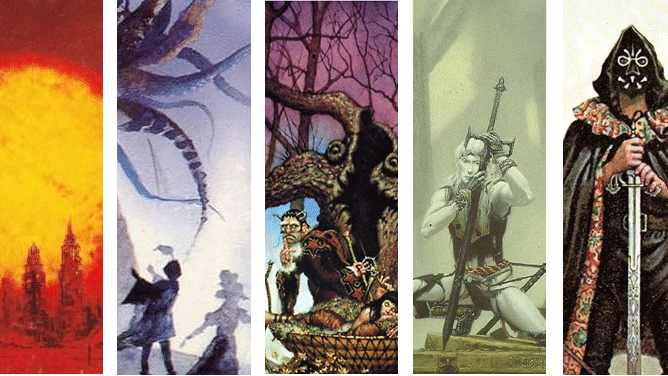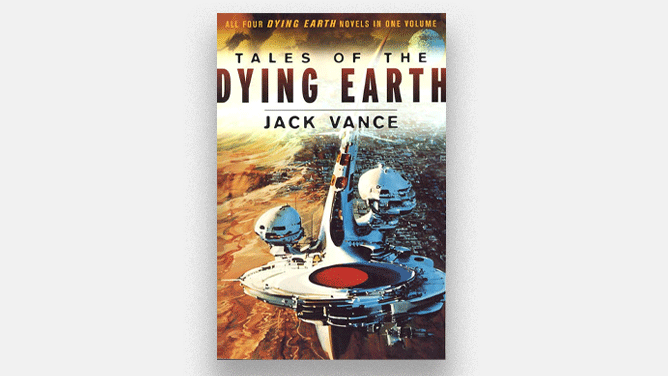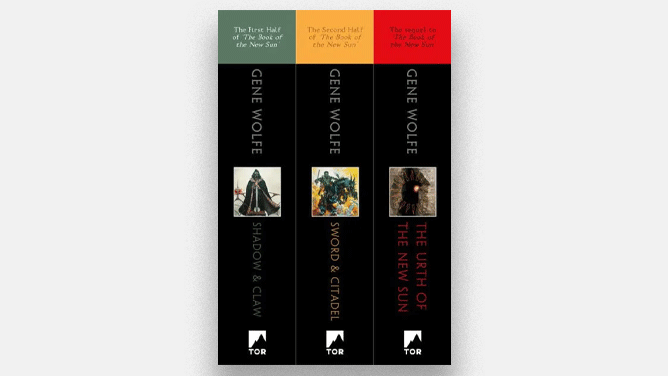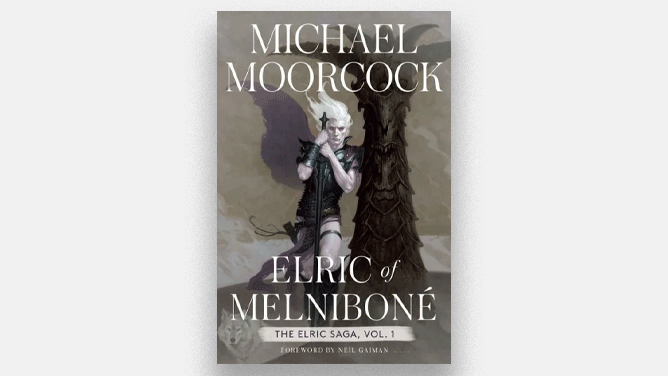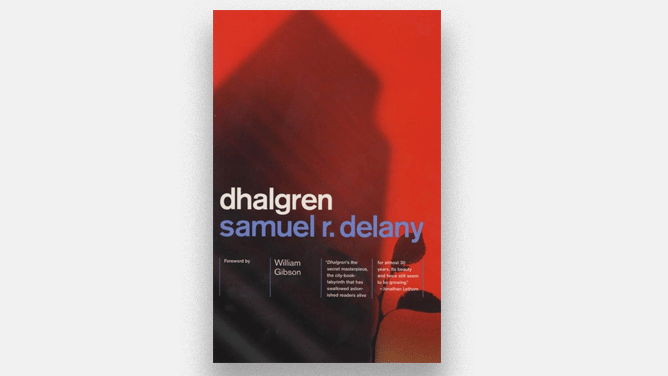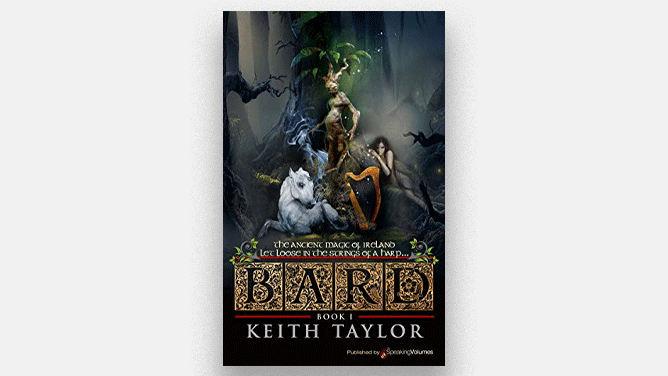With the recent success of Denis Villeneuve’s adaptions of Frank Herbert’s 1965 sci-fi epic Dune, I’ve seen a lot of people excitedly jumping into the book series for the first time. However, if you liked Dune, there’s a whole world of spacey, psychotropic science fiction and fantasy written concurrently for you to enjoy.
Books were chosen for this list based on a number of factors: they’re written by contemporaries (or near contemporaries) of Herbert, they (like Dune) blur the line between science fiction and fantasy, and they’re full of big ideas and philosophical concepts that make them more than a little intellectually provocative. They’re also some of my favorite reads, so I’m always looking to recruit more people into reading literature from one of the more interesting decades of the sci-fi genre.
50 Books Every Man Should Read Before He’s 50
The best books for men aren't necessarily all what you might think of as "manly." At their core, the books that men should read (yes, even if you don't like to read) teach a lesson. Sometimes that lesson is straightforward: self help books that improve life and general wellbeing. Others…
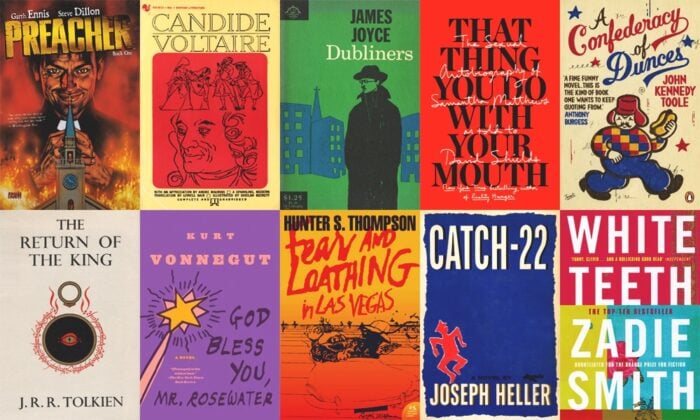
'Tales of the Dying Earth' by Jack Vance
Jack Vance was not just a contemporary of Herbert’s, but also one of his closest friends. The two men went as far as to move to Mexico with their families to start a writer’s colony together, and jointly spent time building and piloting a houseboat around the Sacramento Delta. Vance’s Tales of the Dying Earth is a sprawling collection that houses all of the short stories and novellas that make up his Dying Earth series. Set eons into Earth’s future where the Sun has almost gone out and magic and ancient technology intermingle, Tales from the Dying Earth uses exciting picaresque plotlines to grapple with intense themes of doom, futility, and man’s constant struggle for self-betterment amid a dying and uncaring universe. Vance has something of a reputation of a sci-fi writer’s sci-fi writer, and he casts a long shadow in nerd culture. Most pertinently, the magic system he devised for Dying Earth (where wizards memorize their spells from a spellbook and forget them as they are cast) is used as the basis for spellcasting in Dungeons & Dragons, and the lich god Vecna within the game system is an anagram of his last name.
Buy: $18.89'Book of the New Sun' by Gene Wolfe
Gene Wolfe, an engineer who developed the technology that helps cook Pringles potato crisps (yes, really), drew heavy inspiration from Vance to write his Book of the New Sun, a sprawling science fiction/fantasy series comprising four books and a coda. Book of the New Sun is a bildungsroman about an apprentice of the Guild of Seekers of Truth and Penitence (read: torturers) named Severian who lives in somewhere in the southern hemisphere within a city called Nessus, built around a crashed spaceship from Earth’s (now-defunct) extrasolar empire. Plotwise the books are about Severian’s exile from his home and his discovery of the Claw of the Conciliator, a powerful artifact capable of miracles, as he’s tasked with re-igniting the Sun (the “New Sun” of the title) and reviving humanity’s dormant potential. The books themselves are heavily allegorical and contain lots of Christian imagery (Wolfe himself was a devout Catholic) and can be a challenging but rewarding read for anyone who’s interested in the undertaking. If that’s not enough, here’s another DnD fact for you: these books contain what is very probably the inspiration for the magic item the Mace of Terror.
Buy: $29.58'Elric of Melniboné' by Michael Moorcock
The stories of the albino prince Elric of Melniboné (pronounced “Mel-ni-bo-nay”) and his soul-stealing magic sword Stormbringer are some of Michael Moorcock’s most enduring contributions to the sword-and-sorcery genre (a term which he himself coined). Moorcock’s Elric is the saturnine king of a decadent and decaying island nation whose desire for freedom is constantly at odds with his fated destiny. Moorcock’s eye for detail and description often pads out the somewhat by-the-numbers plots of the six novellas that see our hero fall from grace as the ruler of his kingdom to the final warrior in the battle against Chaos, and Elric’s status as a doomed hero who often strives to do the right and just thing and fails is a novel concept that Moorcock plays with throughout the series to explore concepts of free will and predestination.
Buy: $18.69'Dhalgren' by Samuel R. Delaney
At almost 900 pages, Dhalgren is a bit more of an undertaking than some of the others on this list, but well worth the amount of time you need to put into it. The Kid, an aspiring poet, enters the American city of Bellona to find purpose, gifted only with an “optic chain” he wraps around his body and a bladed weapon he wears on his wrist called an orchid. Bellona itself also suffers from a variety of sci-fi issues: it’s entirely cut off from radio, television and communication signals, time dilates and contracts in strange ways within the city, two moons appear in the sky. Given these details, you might imagine Dhalgren would be a picaresque on par with many of its contemporaries, but no. The Kid spends much of the narrative meeting Bellona’s inhabitants, writing poems in a notebook that appears to contain a diverging account of Dhalgren from the one he’s experiencing as a character, and has numerous philosophical discussions about art, life and desire.
Buy: $17.59'Bard' by Keith Taylor
OK, this one is kind of a cheat because it’s a pure fantasy book, but Bard is the tale of Felimid mac Fal, a bard of Ireland in the Dark Ages of Europe following the Roman collapse. Throughout his adventures he beds Christian women, fights off all manner of adversaries both human and supernatural with his magic sword Kincaid, and gets himself into and out of jams using bardic magic. What sets Bard apart from many mass market fantasy paperbacks is its historical detail–Felimid’s status as a pagan causes him issues with local Briton lords, and his status as a bard causes him a lot of issues even among his fellow pagans, such as Vikings. As well, Keith Taylor breathes a lot of life into his long-fingered and deceptively capable protagonist, and it’s common for Felimid to end a fight or other adverse encounter by thinking “that was stupid, that could have almost cost my my life” or lamenting the senselessness of the acts he’s forced to commit to stay alive.
Buy: $15.95
